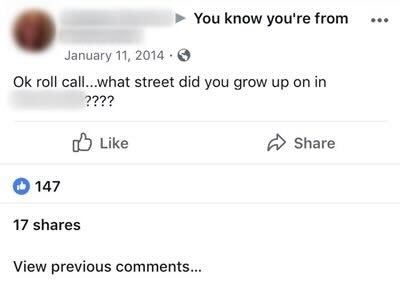
Maybe not. From the perspective of many cyber security experts, the information you share in these types of posts could help cyber crooks steal your identity or get into your online accounts. When you look a little closer at the questions that are shared on social media, you’ll see that oftentimes they’re very similar to the “secret questions” you set up to access many of your accounts online.
To give you some perspective, imagine this scenario: You’re on the website of one of your favorite retailers, and you decide to create an account so you can shop with them online. Your first step is to create a username, followed by a password. At some point during the process, you're also asked to provide answers to one or more “security” or “secret” questions like the ones mentioned above.

These security questions are typically used to help verify your identify. On some sites you may be prompted to answer your questions if you forget your username or password, or if you attempt to log into your account from an unrecognized device. Basically, they’re intended as an added layer of protection for your accounts. After all, who’s going to know what “the make and model of your first car” was, other than you?
Well, according to cyber security experts, the answers to your questions might not be as “secret” as you think. If a crook has their sights set on you, it can be relatively easy for them to monitor what you’re posting on social media, and uncover your personal details.
And with enough personal information, they may just find their way into your online accounts, where they can do some major financial damage. Gaining access to your Online Banking account could allow them to transfer funds into their own accounts. And even if they’re only able to hack into an email account, the potential for damage is still strong. Your emails could be a treasure trove for criminals, containing an array of sensitive financial and personal information. And your other online accounts may contain linked credit card and bank information, or other personal details you wouldn’t want compromised.

One of the best ways to protect yourself from this type of scenario is to be extremely vigilant about the information you share online and on social media. Another option to consider is answering your online security questions falsely, so that if anyone is able to find out important personal details about you, they’ll be useless when it comes to gaining entry to your online accounts.
And be sure to keep your guard up on social media, even when you’re not answering survey questions. There are many different scams making the rounds on sites like Facebook, so always be cognizant about what you’re clicking on, and what information you’re providing.